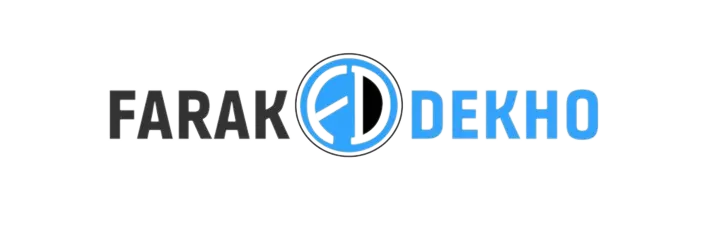Pursuing a Distance MBA program has become an increasingly popular choice for working professionals seeking to enhance their careers without disrupting their professional journey. This comprehensive guide will walk you through the entire application process, from understanding eligibility criteria to submitting a successful application for a Distance MBA program.
A Step-by-Step Guide to Applying for Distance MBA Programs
Distance MBA programs have become increasingly popular in recent years, providing an excellent opportunity for working professionals to pursue higher education without disrupting their careers. If you’re considering a Distance MBA, this comprehensive guide will walk you through the entire application process, from understanding the eligibility criteria to submitting a successful application.
Distance MBA Highlight
Before delving into the application process, let’s highlight the key advantages of pursuing a Distance MBA:
- Flexible Schedule: Distance MBA programs are designed to accommodate the schedules of working professionals, allowing you to study at your convenience without needing regular classes.
- No Career Disruption: You can continue working while pursuing your MBA, eliminating the need to take a break from your professional life.
- Cost-Effective: Distance MBA programs are generally more affordable than their on-campus counterparts, making higher education more accessible.
- Global Exposure: Many distance MBA programs offer opportunities for international collaborations and virtual interactions with peers from diverse backgrounds.
All About Distance MBA
Why Study Distance MBA?
A Distance MBA provides numerous benefits for working professionals, including:
- Career Advancement: An MBA degree can open doors to leadership roles, higher positions, and better career prospects within your organization or in new industries.
- Skill Development: Distance MBA programs equip you with essential managerial skills, such as strategic thinking, decision-making, leadership, and problem-solving, which are highly valued in today’s competitive business landscape.
- Networking Opportunities: While studying through distance mode, you’ll have the chance to network with classmates from diverse backgrounds and industries, expanding your professional network.
Who Should Study Distance MBA?
A Distance MBA is an ideal choice for:
- Working Professionals: A Distance MBA is the perfect solution if you’re already employed and want to enhance your qualifications without leaving your job.
- Entrepreneurs: A distance MBA can provide aspiring or experienced entrepreneurs with the business acumen and leadership skills to succeed and grow their ventures.
- Career Changers: If you’re looking to transition into a different industry or functional area, a Distance MBA can help you acquire the relevant knowledge and skills to facilitate a smooth career change.
Distance MBA Eligibility Criteria
To apply for a Distance MBA program, you typically need to meet the following eligibility criteria:
- Educational Qualifications: Most Distance MBA programs require a Bachelor’s degree from a recognized university with a minimum aggregate score (usually 50% or above).
- Work Experience: While not mandatory for all programs, many Distance MBA courses prefer candidates with a certain amount of relevant work experience, typically ranging from 2 to 5 years.
- Entrance Exam Scores: Many reputed Distance MBA programs require you to take entrance exams like CAT, XAT, CMAT, MAT, or GMAT and achieve a minimum score to be considered for admission.
Distance MBA Entrance Exams 2024
Most reputed Distance MBA programs require you to take one or more entrance exams as part of the application process. Here are some popular entrance exams for Distance MBA programs in 2024:
| Exam | Conducted By | Acceptance |
|---|---|---|
| CAT (Common Admission Test) | Indian Institutes of Management (IIMs) | Widely accepted for MBA programs in India |
| XAT (Xavier Aptitude Test) | XLRI, Jamshedpur | Popular entrance exam for MBA admissions |
| CMAT (Common Management Admission Test) | National Testing Agency (NTA) | Accepted by various universities and institutions across India for Distance MBA programs |
| MAT (Management Aptitude Test) | All India Management Association (AIMA) | Computer-based test for evaluating aptitude for management education |
| GMAT (Graduate Management Admission Test) | GMAC | Used primarily for MBA programs abroad, some Indian universities accept GMAT scores for Distance MBA programs |
Distance MBA Entrance Exam Preparation
Preparing for the entrance exams is crucial for securing admission to a reputed Distance MBA program. Here are some tips to help you prepare effectively:
- Understand the Exam Pattern: Familiarize yourself with the exam structure, sections, and question types to develop an effective preparation strategy.
- Enrol in Coaching Classes: Consider joining reputed coaching institutes or online preparation courses to receive guidance from experienced faculty and access study materials.
- Practice Mock Tests: Regularly attempt mock tests and previous years’ question papers to assess your preparedness and identify areas for improvement.
- Time Management: Develop effective time management strategies to complete each exam section within the allotted time.
- Analyze Your Performance: After each mock test, analyze your performance, identify strengths and weaknesses, and work on areas that need improvement.
Distance MBA Recommended Books
To supplement your preparation, consider referring to the following recommended books for Distance MBA entrance exams:
| Exam Section | Recommended Books |
|---|---|
| Quantitative Aptitude | – Quantitative Aptitude for CAT by Arun Sharma – Quantitative Aptitude by R.S. Aggarwal |
| Verbal Ability | – Word Power Made Easy by Norman Lewis – Verbal Ability & Reading Comprehension by Arun Sharma |
| Logical Reasoning | – A Modern Approach to Logical Reasoning by R.S. Aggarwal – How to Prepare for Logical Reasoning by Nishit Sinha |
| Data Interpretation | – Data Interpretation for CAT by Ananta Ashisha – Data Interpretation & Data Sufficiency by Anish Passi |
Distance MBA Syllabus
While the exact syllabus may vary across institutions, Distance MBA programs generally cover the following core subjects:

- Managerial Economics
- Financial Management
- Marketing Management
- Human Resource Management
- Operations Management
- Strategic Management
- Business Communication
- Business Ethics and Corporate Governance
Duration of Distance MBA Programs
The duration of Distance MBA programs typically ranges from 2 to 3 years. However, some institutions may offer accelerated or part-time options, allowing students to complete the program in a shorter or longer duration, respectively.
The exact duration can vary depending on factors such as the institution, mode of delivery (fully online or hybrid), and the student’s pace of learning.
Distance MBA Vs Regular MBA
While both Distance MBA and Regular MBA programs aim to impart similar management knowledge and skills, there are some key differences:
| Aspect | Distance MBA | Regular MBA |
|---|---|---|
| Mode of Delivery | Online/Distance Learning | On-campus Classroom Learning |
| Flexibility | Higher flexibility, suitable for working professionals | Fixed schedules, less flexibility |
| Cost | Generally more affordable | Higher tuition fees and living expenses |
| Networking Opportunities | Limited in-person networking | Extensive in-person networking |
| Practical Exposure | Limited practical exposure and internships | More opportunities for valuable exposure and internships |
| Top 10 Distance MBA Colleges in Delhi |
| Top 10 Distance MBA Colleges in Mumbai |
| Top 10 Distance MBA Colleges in Hyderabad |
| Top 10 Distance MBA Colleges India |
Curriculum Differences: Distance MBA vs. Regular MBA
While the core subjects and overall objectives of Distance MBA and regular MBA programs are broadly similar, there are some notable differences in the curriculum and delivery methods:
Certainly! Here’s the information presented in a tabular format:
| Aspect | Regular MBA Programs | Distance MBA Programs |
|---|---|---|
| Course Content | More theoretical and case-study-based | More condensed and focused on practical applications |
| Delivery Methods | In-person classroom lectures, group discussions, face-to-face interactions | Online learning platforms, pre-recorded video lectures, virtual classrooms, asynchronous learning |
| Practical Exposure | Offers more opportunities through internships, live projects, on-campus visits | May have limited exposure; some institutions incorporate virtual internships or capstone projects |
| Networking Opportunities | Extensive in-person networking with classmates, faculty, industry professionals | Networking through online forums, virtual events |
Despite these differences, both Distance MBA and regular MBA programs aim to impart similar management knowledge and skills, with the primary distinction being the mode of delivery and flexibility offered.
Executive MBA Vs Distance MBA
| Aspect | Executive MBA | Distance MBA |
|---|---|---|
| Target Audience | Experienced professionals with significant work experience | Working professionals with varying levels of experience |
| Duration | Shorter duration, typically 1-2 years | Longer duration, generally 2-3 years |
| Delivery Mode | Combination of on-campus and online classes | Primarily online/distance learning |
| Networking Opportunities | Extensive in-person networking | Limited in-person networking |
| Cost | Higher tuition fees | Generally more affordable |
Distance MBA Specialisations
Many Distance MBA programs offer the option to specialize in specific areas of interest, such as:

- Finance
- Marketing
- Human Resource Management
- Operations Management
- Information Technology
- Entrepreneurship
- Supply Chain Management
- International Business
Choosing a specialization can help you develop focused expertise in your area of interest and enhance your career prospects.
Types of Distance MBA
Distance MBA programs can be broadly categorized into two types:
- Fully Online MBA: These programs are conducted online, with no requirement for physical attendance. All course materials, lectures, assignments, and assessments are delivered through an online learning platform.
- Hybrid MBA: Hybrid MBA programs combine online learning with occasional on-campus sessions or residential components. These on-campus sessions may involve intensive workshops, seminars, or capstone projects, providing in-person interactions and networking opportunities.
Both fully online and hybrid Distance MBA programs offer flexibility and convenience for working professionals, allowing them to balance their studies with their professional and personal commitments.
Certainly! Here’s the information converted into a table format:
Popular Private And Government Distance MBA Colleges
| Type | College/University |
|---|---|
| Private Distance MBA | Symbiosis Centre for Distance Learning (SCDL) |
| Indira Gandhi National Open University (IGNOU) | |
| Amity University | |
| Sikkim Manipal University | |
| Annamalai University | |
| Government Distance MBA | University of Delhi |
| Banaras Hindu University (BHU) | |
| Madhya Pradesh Bhoj Open University | |
| Dr. Babasaheb Ambedkar Open University | |
| Yashwantrao Chavan Maharashtra Open University |
When selecting a Distance MBA college, consider factors such as accreditation, reputation, faculty, curriculum, and placement records to ensure a quality education and enhance your career prospects.
Selection Process for Distance MBA Programs
After taking the required entrance exams, the selection process for Distance MBA programs typically involves the following steps:
- Application Submission: Candidates must submit a complete application form and the required documents, such as academic transcripts, work experience certificates, entrance exam scores, and a statement of purpose (SOP).
- Entrance Exam Score Evaluation: The entrance exam scores (CAT, XAT, CMAT, MAT, or GMAT) are evaluated against the cutoff set by the institution for the Distance MBA program.
- Personal Interview (Optional): Some institutions may conduct personal interviews or group discussions to assess the candidate’s communication skills, problem-solving abilities, and overall suitability for the program.
- Work Experience Evaluation: For programs that require work experience, the candidate’s professional background and relevance of experience are evaluated.
- Merit List and Seat Allocation: Based on a composite score calculated from the entrance exam, academic performance, work experience, and other criteria, a merit list is prepared, and seats are allocated to eligible candidates.
- Admission and Fee Payment: Selected candidates are notified, and they must accept the offer and pay the required fees to secure their admission to the Distance MBA program.
It’s important to note that the specific selection process and weightage given to various components may vary across institutions, so it’s advisable to check the admission guidelines of the Distance MBA program you’re interested in.
Distance MBA Areas of Employment
With a Distance MBA degree, you can explore job roles in various domains, including:
- Marketing and Sales: Product Manager, Brand Manager, Marketing Manager, Sales Manager, etc.
- Finance: Financial Analyst, Investment Banker, Portfolio Manager, Risk Manager, etc.
- Human Resources: HR Manager, Talent Acquisition Manager, Compensation and Benefits Manager, etc.
- Operations: Operations Manager, Supply Chain Manager, Logistics Manager, etc.
- Entrepreneurship: Starting and managing your business venture.
Distance MBA Average Salary in India
The average salary for Distance MBA graduates in India can vary based on factors such as industry, location, and job role. However, here are some approximate salary ranges:
- Entry-Level Positions: INR 5-8 lakhs per annum
- Mid-Level Positions: INR 8-15 lakhs per annum
- Senior-Level Positions: INR 15-25 lakhs per annum
- Top Management Roles: INR 25 lakhs and above per annum
Distance MBA Top Recruiters
Some of the top recruiters that actively hire Distance MBA graduates include:
- Multinational Companies: Microsoft, Amazon, Google, Accenture, Deloitte, KPMG, etc.
- Consulting Firms: McKinsey & Company, Boston Consulting Group, Bain & Company, etc.
- Banks and Financial Institutions: ICICI Bank, HDFC Bank, Axis Bank, Standard Chartered, etc.
- IT Companies: TCS, Infosys, Wipro, HCL Technologies, etc.
- Manufacturing Companies: Tata Motors, Mahindra & Mahindra, Maruti Suzuki, etc.
Distance MBA FAQs
Are Distance MBA degrees recognized in India?
Yes, Distance MBA degrees are recognized in India, provided they are obtained from a reputed and accredited university or institution approved by the University Grants Commission (UGC) or the All India Council for Technical Education (AICTE).
How long does it take to complete a Distance MBA program?
Most distance MBA programs in India are 2-3 years, although some institutions may offer accelerated or part-time options with varying durations.
Are Distance MBA programs affordable?
Distance MBA programs are generally more affordable than their on-campus counterparts, as they eliminate the need for accommodation, commuting, and other associated costs. However, the fees can still vary across institutions.
Can I work while pursuing a Distance MBA?
Yes, one of the primary advantages of a distance MBA is its flexibility in continuing to work while studying. The online or distance learning format allows you to balance your professional and academic commitments effectively.

Lovepreet Sachdeva is an SEO Specialist with extensive experience in helping businesses improve their online presence. He is dedicated to providing top-notch SEO services and personalized strategies to boost your website’s performance. Contact him today for professional SEO assistance.





